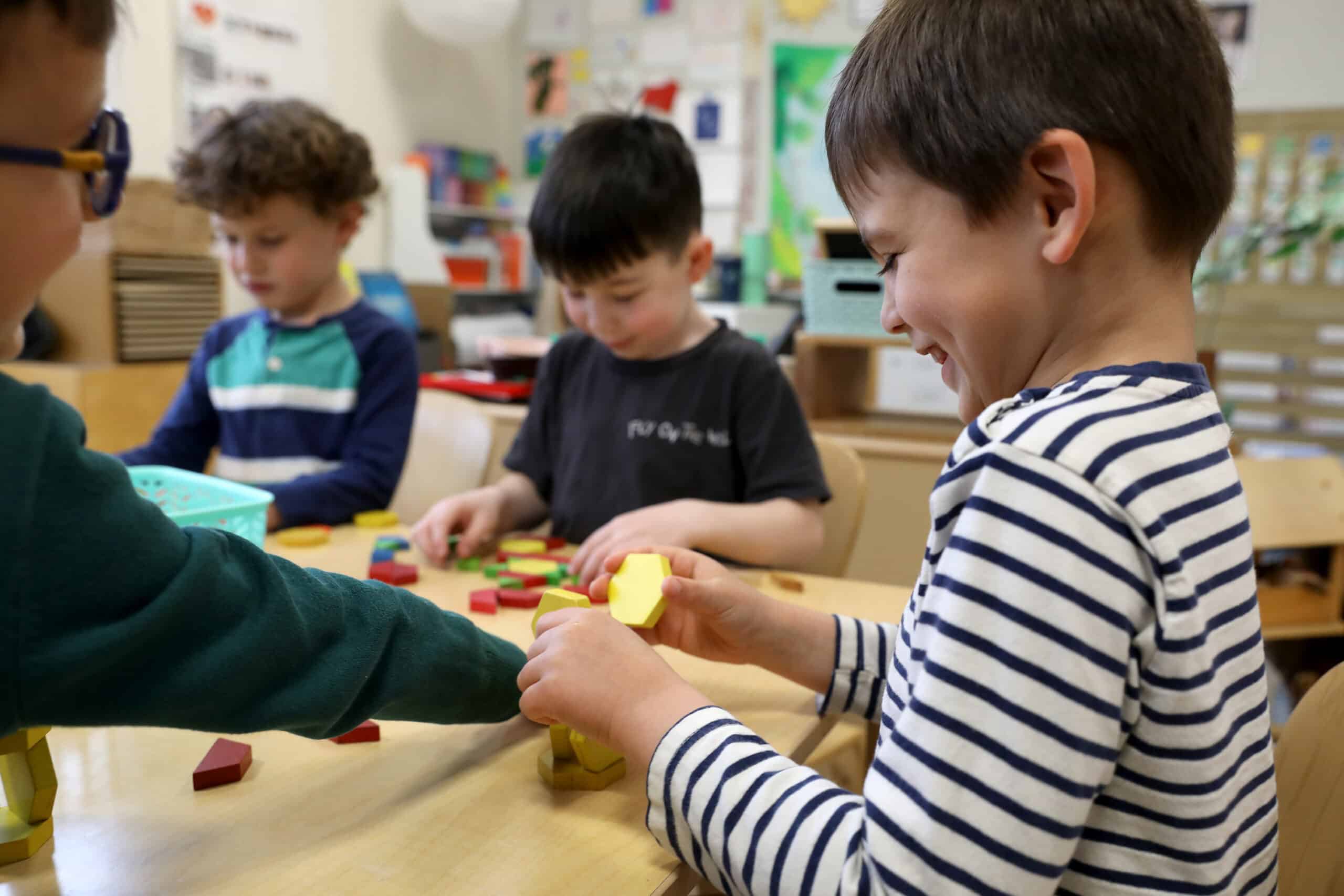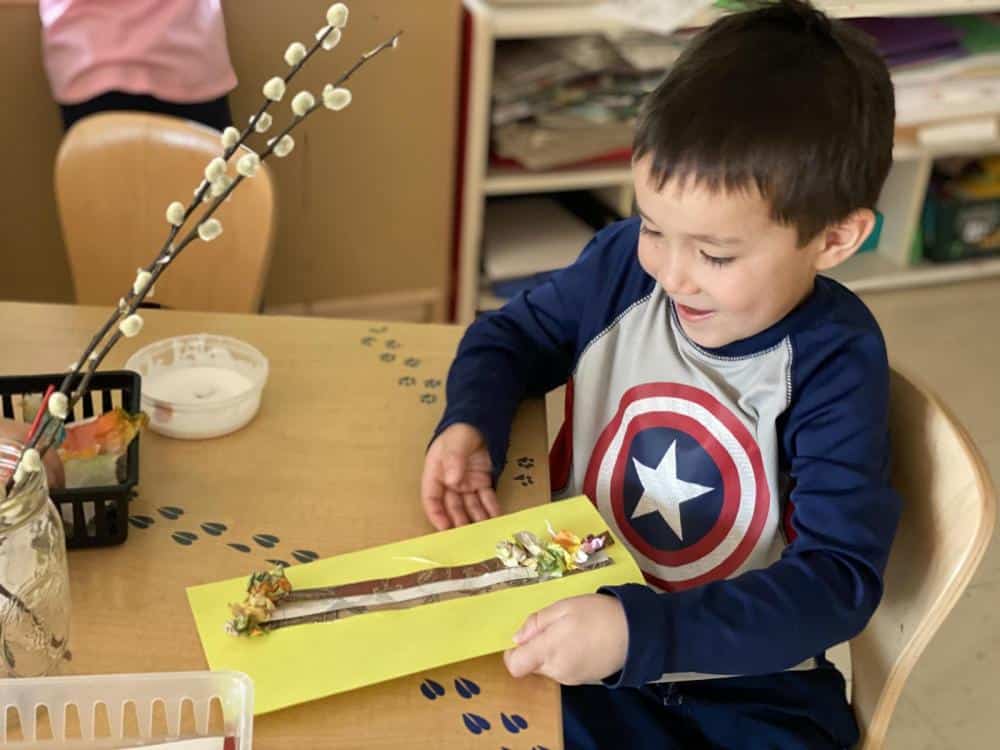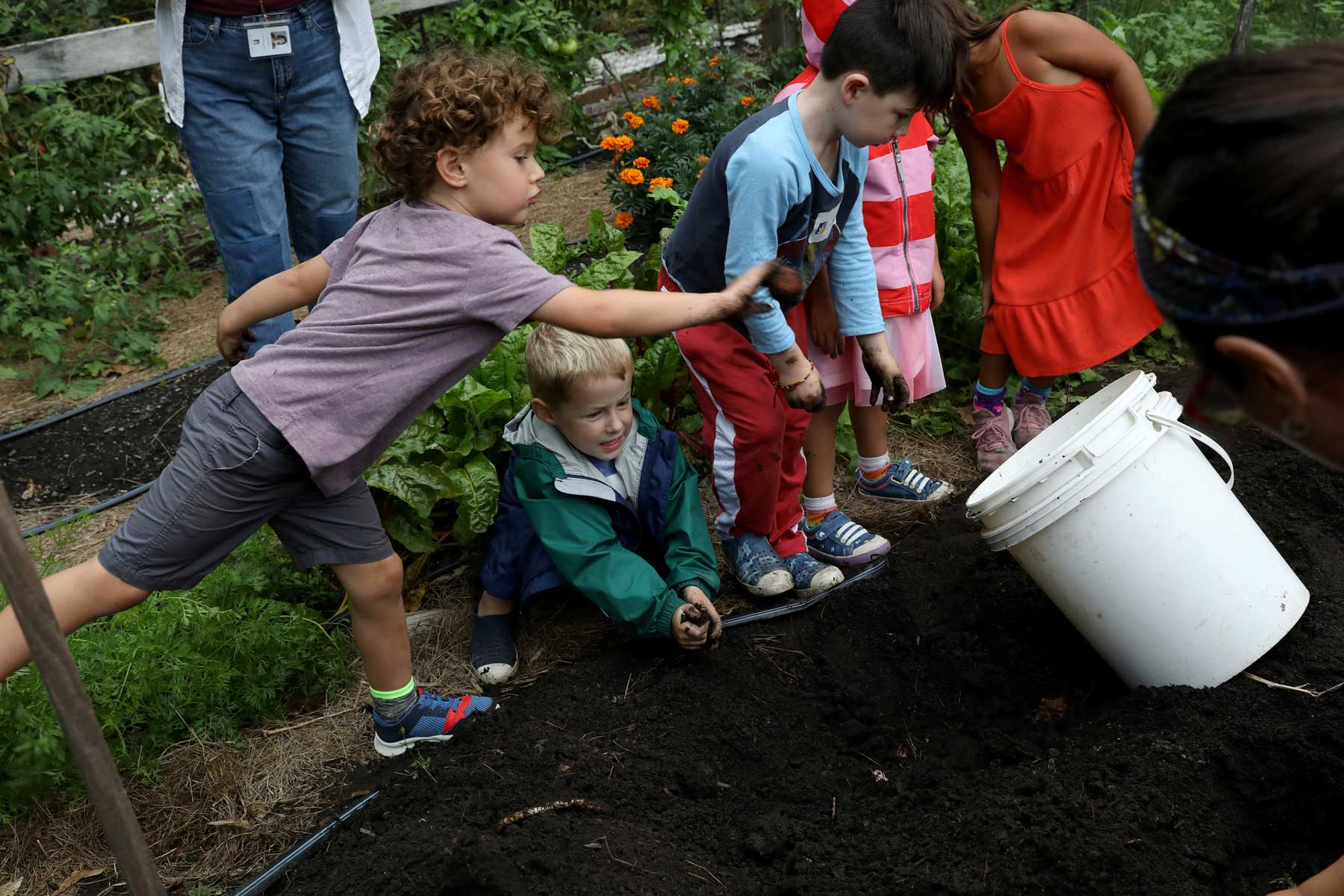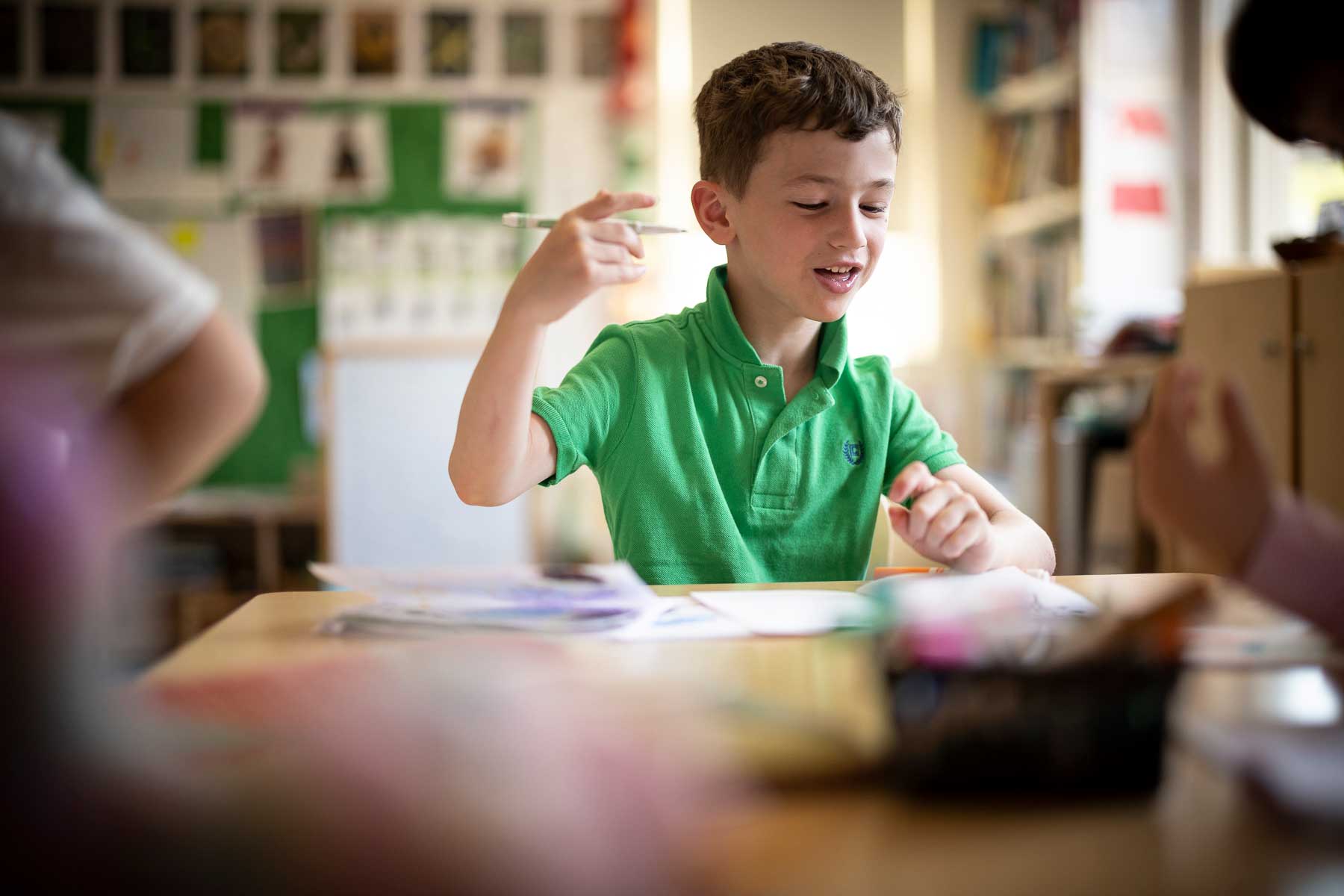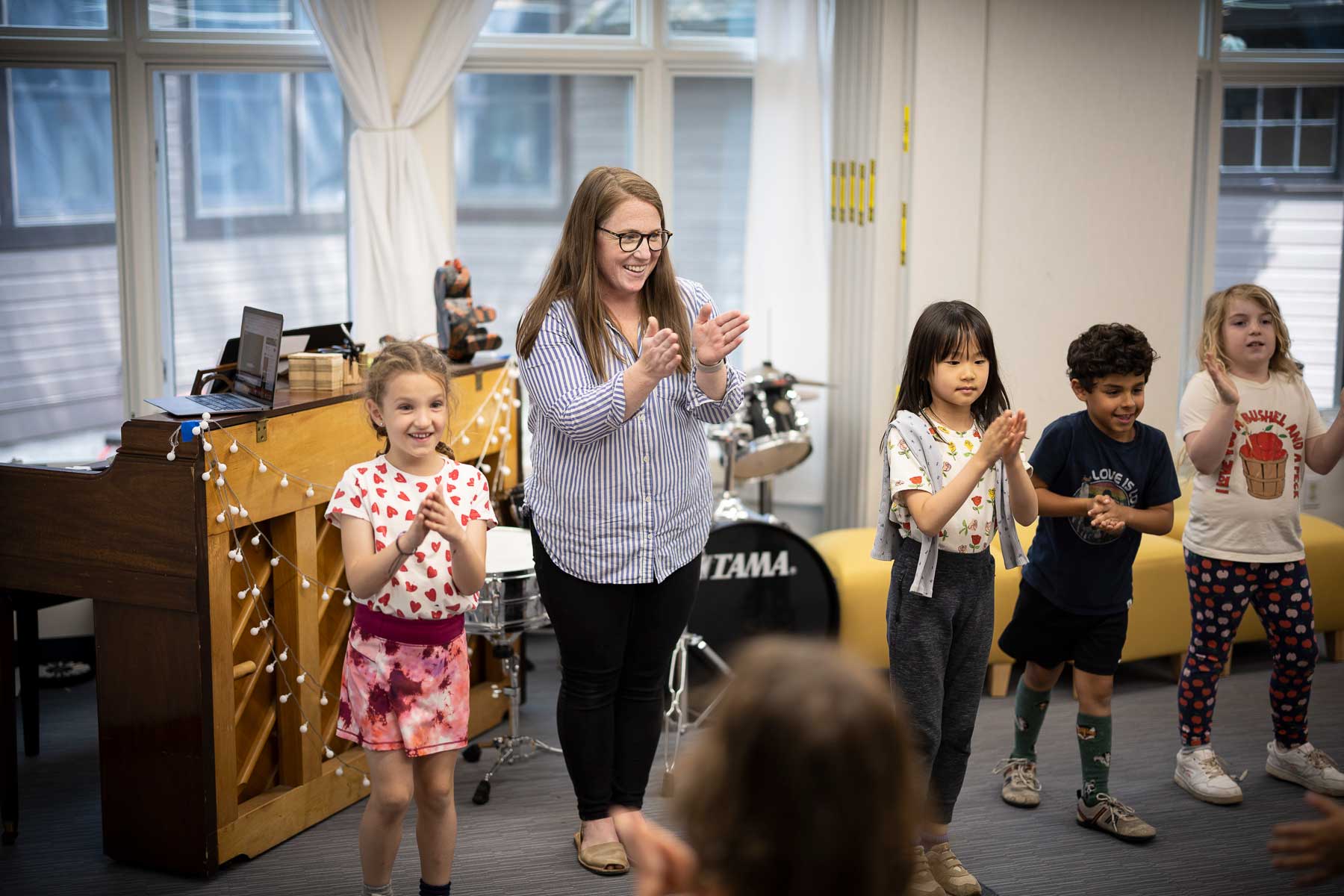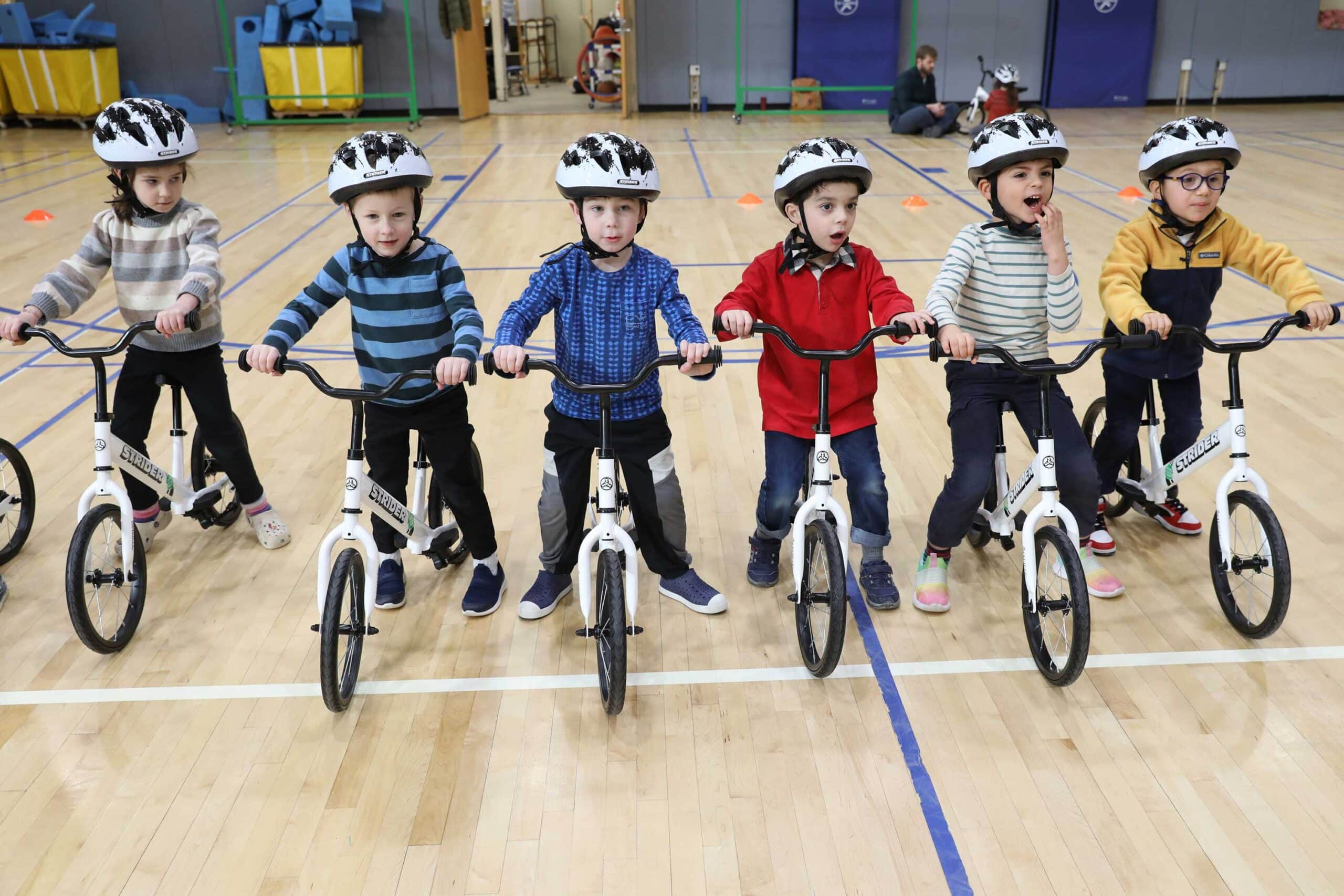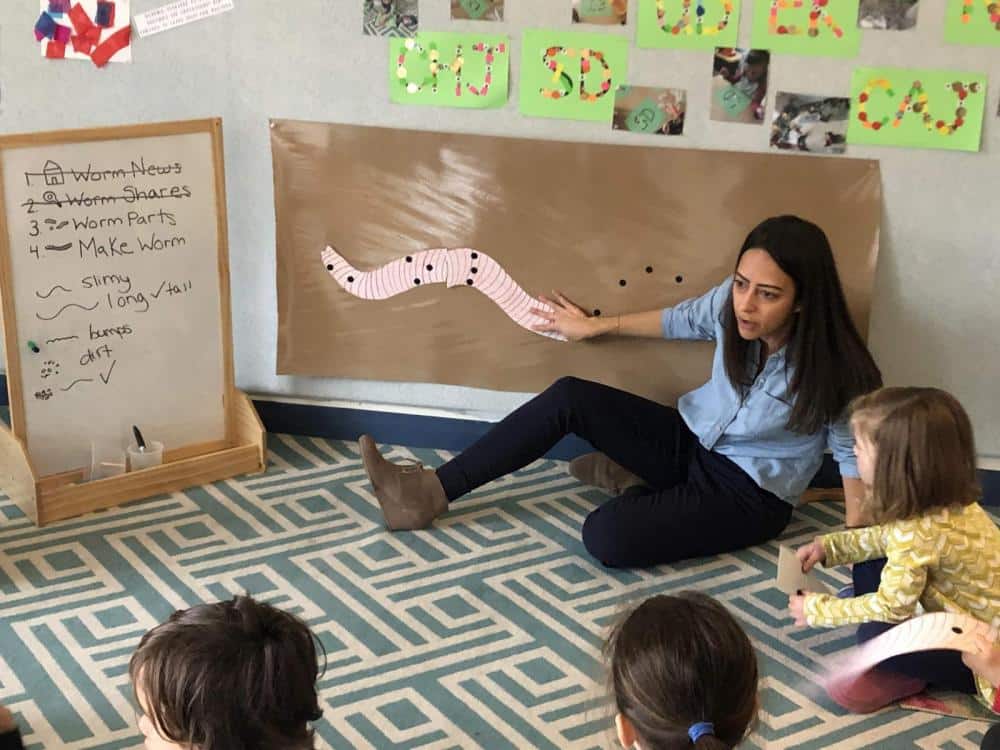The pre-kindergarten program invites children to actively contribute, explore, and discover. As experts in child development, Belmont Day teachers integrate inquiry-based and experiential learning to nurture students’ curiosity and imagination. A central goal of the integrated curriculum is to create a sense of unity, belonging, and importance among our youngest students. The foundation is informed by core questions: Who am I? Who are you? Who are we?
Program Highlights
- A new community
- Eighth grade cross-graded partners
- Active participation in school-wide sharing assemblies
- Woods walks
- School garden
- Work stations
- Sculpture unit in conjunction with the deCordova Museum
- Bookmaking
- Big Blue, tricycles, and outdoor play
- Pre-kindergarten and kindergarten field day run by eighth graders
Specialist Time
- French twice a week for 30 minutes for one trimester
- Music twice a week for 30 minutes
- Physical education twice a week for 30 minutes
- Library once a week for 30 minutes
We welcome students and families from many cities and towns including Arlington, Belmont, Cambridge, Medford, Lexington, Lincoln, Newton, Waltham, Watertown, Winchester, and Woburn. Contact us today to find out more about our pre-k day school program.


